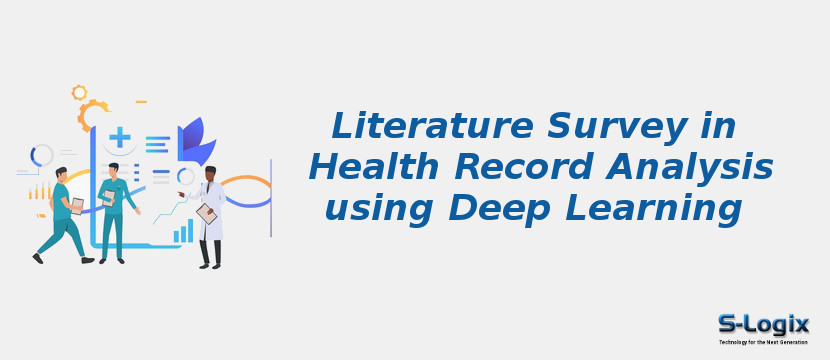With the progress of medical technology, healthcare data are recorded electronically and formed as Electronic Health Records (EHR). EHR comprises various medical data sources, including laboratory results, medication prescriptions, diagnosis reports, medical images, treatment plans, patients medical history, and clinical notes.
The availability of an enormous amount of clinical information improves the growth of deep learning technology in health record analysis of patient data. Deep learning owns the capability of handling huge and complex data. In recent times, an electronic health record has been integrated with deep learning methods for health record analysis systems, conducive to providing depth knowledge for health outcomes.
For deep learning researchers, health record analysis using HER is an expanding research area that helps attain consistent accuracies in health conditions. Deep learning-based health record analysis provides improved clinical predictions for various diseases, precision medicine, and better clinical decision support. Various health record analysis tasks employ deep learning techniques using electronic health records (EHR) to impart superior healthcare outcomes.
Such deep learning-based health record analysis tasks are Disease classification, Sequential prediction of clinical events, Computational Phenotyping, Medical data augmentation, Health record data privacy, and personalized prediction of risks and health trajectories.
Some of the deep learning projects and systems for health record analysis are Prediction of ACM, Deep Patient, Doctor AI, Deep Care, and Deep R. The most promising deep learning architectures utilized for health record analysis are Convolutional neural networks (CNN), Recurrent neural networks (RNN), Autoencoders (AE), Restricted Boltzmann machine (RBM), Unsupervised embedding, Generative adversarial network (GAN), Deep Q Networks and Deep Transfer Learning.
Some of the challenges are temporality and irregularity, Inadequacy of labels, Multi-modality, Interpretability, Fleetingness, Data Heterogeneity, Unified Representation, Patient De-identification, and Clinical Text in deep learning based health record analysis, which requires further research efforts. A few future research scopes of deep learning-enabled health record analysis are Strategies for irregularity, Multitask learning, Transfer learning, Attention mechanism, Knowledge injection via attention, and Knowledge distillation.
Several reviews and surveys were conducted related to health record analysis listed below. These published papers describe key deep learning architectures, current challenges, opportunities, applicative tasks, and future research directions.
